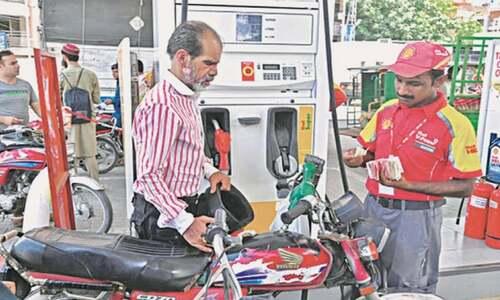MUCH has been said and written about Hamid Akhtar after his sad departure. I am concerned here with his role as a progressive writer in contrast to his role as a party worker. In fact, because of these two roles, his association with the Progressive Writers’ Movement appears divided into two periods, one closely following the other.
During the first period, which began around the mid-1940s, Akhtar appeared devoted mainly to party work. The few stories he wrote during these days went unnoticed even within the circle of the progressives. This period came to an abrupt end with the disruption of the party because of the catastrophe known as the Pindi Conspiracy Case in 1951.
It was during 1953 that Akhtar, after his release from jail, made an appearance in the true sense as a writer with Kal Kothri.
This book is a deeply felt depiction of life lived in prison. No sensitive reader could afford to take this work lightly. Moreover, with the publication of Kal Kothri, Akhtar could no longer be confused with just being a party worker. His painful story is of the dreary life lived within the four walls of a prison. He tries to share with his comrades their sorrows and afflictions.
This political prisoner suffering for a cause is not just embroiled in his own sorrows. He is also in touch with all kinds of other prisoners and tries to share their sorrows regardless of the crime committed. He treats them as a brotherhood of afflicted souls. Kal Kothri is a graphic depiction of this brotherhood.
Akhtar also becomes aware of the presence of those living under the shadow of an impending death, hoping and waiting for a miracle that might save them from being hanged. He is distressed at their fate and by forging a personal relationship with each, he delves deep into their tortured souls and sincerely portrays them, depicting at the same time the vulnerability of their relatives.
Akhtar is at his height when trying to capture their last moments. It is the capturing of such moments which elevates his account to a superior literary status and guarantees a place for this book in Urdu literature.
The other work which secures Akhtar an honorable place in the array of prominent progressive writers is the portraits of distinguished writers and intellectuals, mostly progressives, of his time. He has to his credit two volumes, Ahwal-i-Dostan and Ashnaiyan Kya Kya, in which we read his portrayal of a number of writers belonging to the literary period of the 1930s and 1940s.
With the exception of a few, these include progressive luminaries, those who led the movement and those who, with their sheer talent, such as Faiz and Krishan Chandar, dominated the literary scene. Because of his personal relationship with all of them, Akhtar was in a position to know them intimately and portray them in a personal light. To top them all was Sajjad Zaheer, the leader of the movement, with whom Akhtar had worked closely, having won his confidence as one devoted selflessly to the cause. As portrayed by him, Bannay Bhai comes to us as an acme of virtues worthy to lead the movement.
The portraits can be seen as the outcome of a writer’s passion to sketch the characters of personalities whom he knows intimately and who have impressed or inspired him. But perhaps Hamid Akhtar had a higher purpose in view; we must not forget that Akhtar was the tail-ender of the generation of the progressives belonging to the 1930s and 1940s. He seems to be conscious of his responsibility as the last one and so felt duty bound to record all that he knew about the movement as he had experienced it. In this manner, he leaves behind a record for the benefit of future generations.
While portraying the stalwarts and the luminaries of the movement, Akhtar wanted to present them as they were. Also, while speaking about them he is also speaking about the movement as he had known it through them.
Doing so, he played the role of a chronicler of the Progressive Writers’ Movement.














































Dear visitor, the comments section is undergoing an overhaul and will return soon.